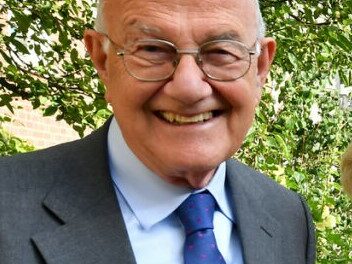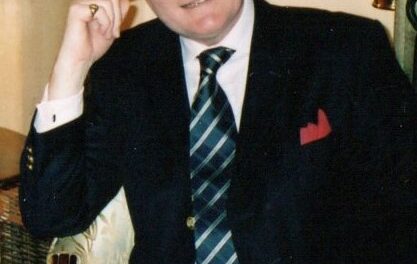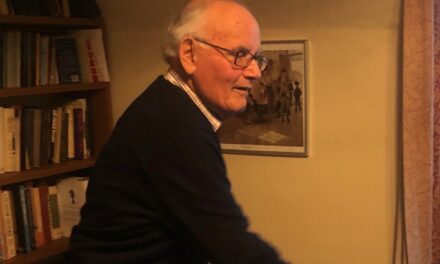When the pro-Nazi author David Irving was left with a bill for £2 million legal costs, it was a humiliating conclusion to his failed libel action over claims that he was a Holocaust denier. It was an equally satisfying triumph for Heather Rogers KC, who acted for Penguin, publishers of the book Denying the Holocaust by the American academic, Deborah Lipstadt.
Rogers was junior counsel to Richard Rampton KC in the trial in 2000, which went on to be made into the film Denial. Friends of Rogers felt that the screenwriter, David Hare, had played down her crucial role but she herself thought he had done a good job in bringing the case to life. It was typical of her modest, self-effacing approach: her view, one colleague said, was: ‘I didn’t get the credit, but I got the outcome.’
Yet Rogers’ fierce intellect, quiet doggedness and forensic attention to detail was widely recognised by colleagues and judges alike. In the Irving case, Mr Justice Gray adopted much of her synthesis of the historical evidence and found that Lipstadt was justified in saying that Irving had falsified history to exonerate Hitler, driven by antisemitism and his own pro-Nazi views.
She and Rampton went on to form an enduring partnership and worked together on many leading defamation cases: Rogers was the perfect foil to Rampton’s more flamboyant, bold style of advocacy — they made a formidable double act.
Over three decades, Rogers established herself as a leading specialist in media, privacy and information law, through cases such as the Spycatcher breach of confidence litigation to big libel trials — Elton John against the Mirror Group; George Galloway MP against the Telegraph; and Peter Cruddas, former Treasurer of the Conservative Party, against The Times.
Among her high-profile trials was the libel action brought by the former Tory MP Neil Hamilton against the Harrods owner, Mohamed Al Fayed, in 1999. Hamilton sued over claims that he had taken cash and other benefits for asking parliamentary questions. Rogers was on Fayed’s legal team, led by George Carman QC and James Price QC. Hamilton lost, although Fayed ultimately failed to recover his costs.
Warm, funny and shrewd, Rogers had many admirers at the Bar but also in the media. Ian Hislop and Robin Shaw, Private Eye’s editor and lawyer respectively, were longstanding clients — she and the solicitor Rupert Earle were once depicted in the Eye as fugitives from US justice. Rogers had acted with Geoffrey Robertson KC in defending The Times over a money-laundering allegation against Lord Ashcroft. The newspaper settled with a front-page retraction, but the lawyers involved — including Earle and Rogers — were pursued, initially at least, by the US Department of Justice.
At the end of the Hutton inquiry, which looked into the death of David Kelly, a former UN weapons inspector in Iraq, Rogers represented Andrew Gilligan, the BBC reporter. At the end she was invited and agreed to go for drinks with the journalists, deciding it would be far more fun than joining the lawyers at their drinking hole.
Heather Rogers was born in 1959, in Wolverhampton. Her father George Rogers was a carpenter who then went into the construction industry, and her mother Olga Ingram was a secretary. Rogers went to Wolverhampton Girls’ High School and then to the London School of Economics, where she excelled academically, graduating in 1980 with a first-class LLB. She was Called to the Bar in 1983 and was first in her year after achieving what is believed to be the highest-ever score.
Her legal life spanned tenancies in all the big media sets of chambers. She was the first pupil of Geoffrey Robertson KC when he started out at Dr Johnson’s Buildings: it was unusual, at that time, not to recruit from Oxbridge, but her impressive credentials persuaded him to break that mould.
She became an in-house lawyer as legal manager of Robert Maxwell’s London Daily News and when it folded went to 10 South Square (later 5 Raymond Buildings and now 5RB) in 1984. She moved in 2000 to Matrix Chambers as one of its founding members, taking silk in 2006; to Doughty Street Chambers in 2009 (until 2015) and then to 1 Brick Court, the set of her friend Richard Rampton KC. On its demise in 2019, she returned to Doughty Street, where she headed the media team.
Rogers was a Bencher of Middle Temple and, since 2010, a Recorder (crime) on the South Eastern Circuit, but she preferred the challenge and excitement of the variety of work at the libel Bar, both for defendants and claimants. Yet she knew first-hand the defects of the law and went on to be the architect, with Lord Lester of Herne Hill, of his Defamation Bill in 2010, which became the 2013 Act. Its various reforms included limiting libel claims by companies and putting the ‘public interest’ defence for publications on a statutory footing.
Her many landmark cases where she acted for defendant publishers included: Spycatcher (Attorney-General v The Observer Ltd); Esther Rantzen v Mirror Group Newspapers (MGN); and Elton John, also against MGN, which put a brake on escalating libel damages and sealed her reputation as a free-speech advocate and doyenne of media defendant lawyers. The ruling in Derbyshire County Council v Times Newspapers, where she acted for the newspaper, established the principle that government bodies could not sue for libel.
She did not only act for defendant publishers. As well as George Galloway, she was counsel for Roman Polanski (led by John Kelsey-Fry KC) in Polanski’s libel action against Vanity Fair over an article alleging he tried to seduce a Scandinavian model on his way to Sharon Tate’s funeral by claiming he could make her ‘another Sharon Tate.’ The jury awarded Polanski £50,000 in damages. Witnesses at the trial included Mia Farrow. Polanski made legal history by becoming the first claimant in a libel trial to give evidence by video link.
She was also a trustee of Article 19, the international free-speech organisation; a director of the Campaign for Freedom of Information from 2004 to 2012; and a co-author of the leading textbook Duncan and Neill on Defamation (5th edition).
Rogers was ‘a working-class girl who never forgot her roots’, a friend said. ‘She loved Greggs — the difference between Greggs and Pret a Manger illustrated the north-south divide, she would say.’ She enjoyed the arts, theatre and music, the company of her two cats and spending time in Walberswick, Suffolk. She is survived by her wife, Julie Edwards, a television and film producer with whom she lived for 25 years. They married four years ago in Canada when visiting her younger brother, Paul, and his family.
Rogers carved her career in a legal world where reputations are at stake but, unusually, never sought to promote her own. The plethora of tributes after her sudden death have however testified to it: Pia Sarma, editorial legal director at The Times, recalled a person of ‘brilliant wit and sense of mischief but fundamentally grounded, with a fair and inquiring mind and sense of justice. I can still hear her say, with the warm Black Country twang coming through, “that’s just wrong”.’
Reproduced with kind permission from The Times.




